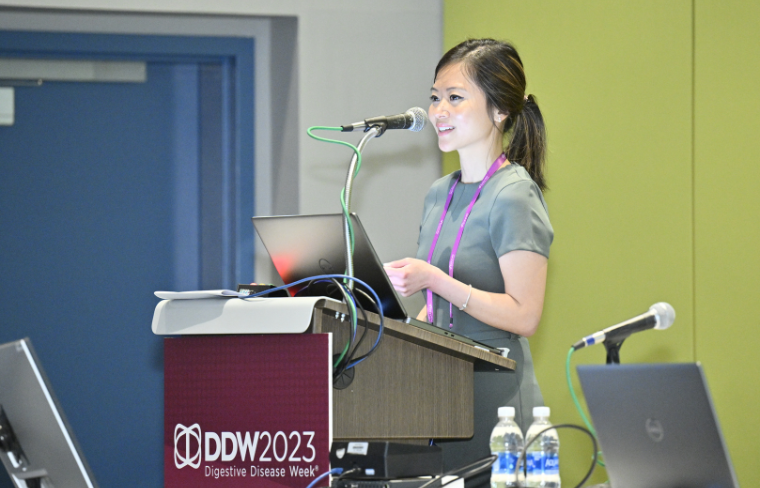
Congratulations on your first abstract presentation at Digestive Disease Week® (DDW). Embarking on presenting an abstract for the first time at a distinguished conference like DDW marks a significant milestone in any trainee’s academic journey. This momentous occasion is your platform to disseminate your hard work, forge connections with peers and experts, and establish a foundation for forthcoming opportunities. Let’s delve into the essentials — I’ve compiled five tips for a successful presentation that apply whether your work is accepted as a poster or an oral presentation.
1. Craft Your Elevator Pitch: Compose a concise, compelling elevator pitch that succinctly introduces both your research and yourself. This will be an asset during your presentation and be especially helpful for networking opportunities throughout DDW.
2. Master Your Material: Your abstract’s acceptance signals its significance to the field; your task now is to articulate this significance with clarity and conviction. Immerse yourself in every facet of your study, from the methods to the outcomes and their broader implications. Be ready to answer questions from other attendees and to explain the impetus behind your research question, as well as the details of your findings.
3. Hone Your Presentation Skills: A great presentation is characterized not solely by its content but also by its delivery. Rehearse your presentation diligently, giving special attention to tone, tempo and non-verbal cues. Practicing in front of a colleague or videotaping yourself might provide insight into potential areas of improvement. There will also be a sign up available on-site for 15-minute practice sessions in the Speaker Headquarters.
4. Employ Visual Aids: If you’re giving an oral presentation, steer clear of overburdening your slides or posters with text, as this can detract from your presentation. Use bullet points to underscore crucial information and integrate graphics or charts to convey complicated data. DDW also recommends using the official DDW 2024 PowerPoint slide template.
5. Solicit and Heed Feedback: Post-presentation, actively request feedback and prompt questions. Embracing constructive criticism and maintaining an open mindset is integral to your evolution as a researcher and presenter. Reviewing this feedback will enable you to discern your strengths and areas to improve. Furthermore, this process will bolster your engagement with your audience and offer an invaluable opportunity to polish your research before contemplating journal submission.



